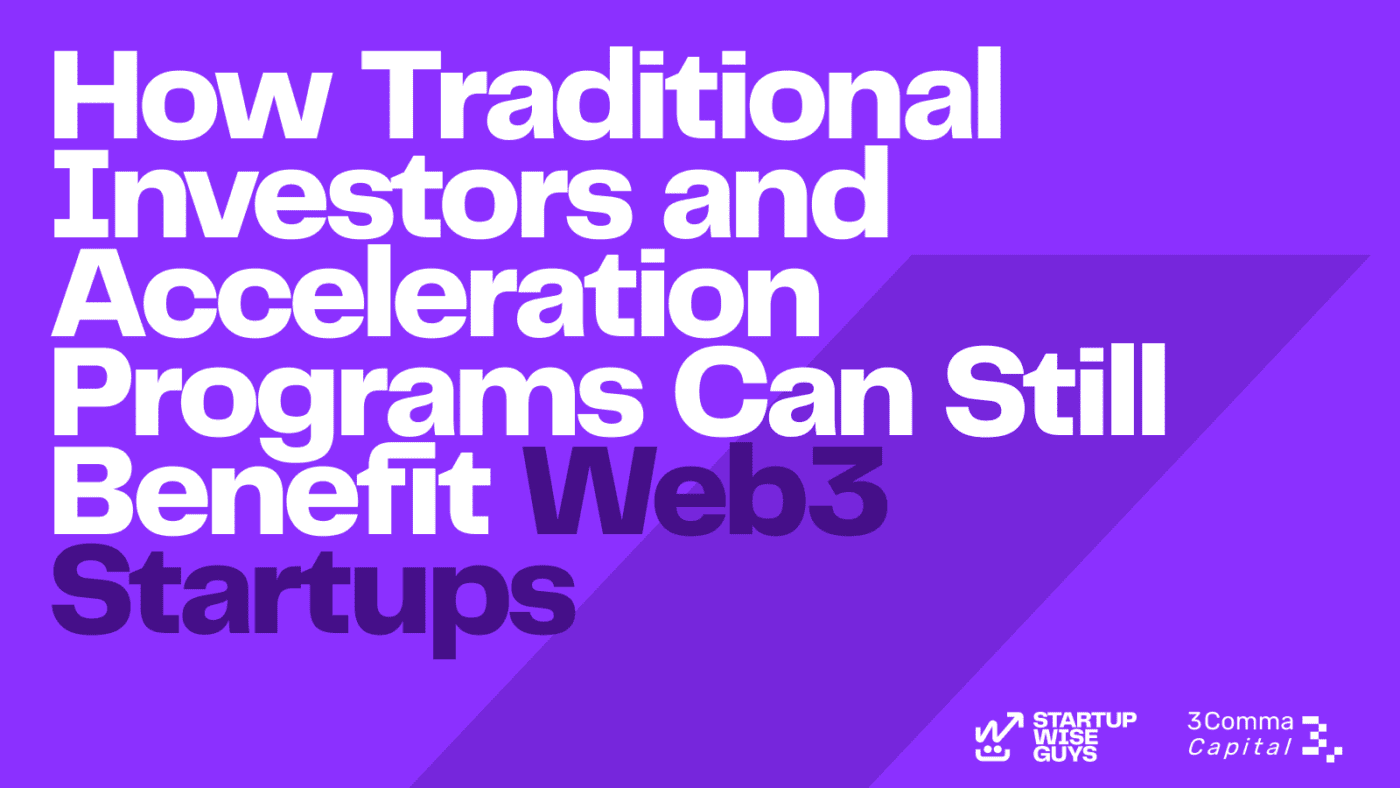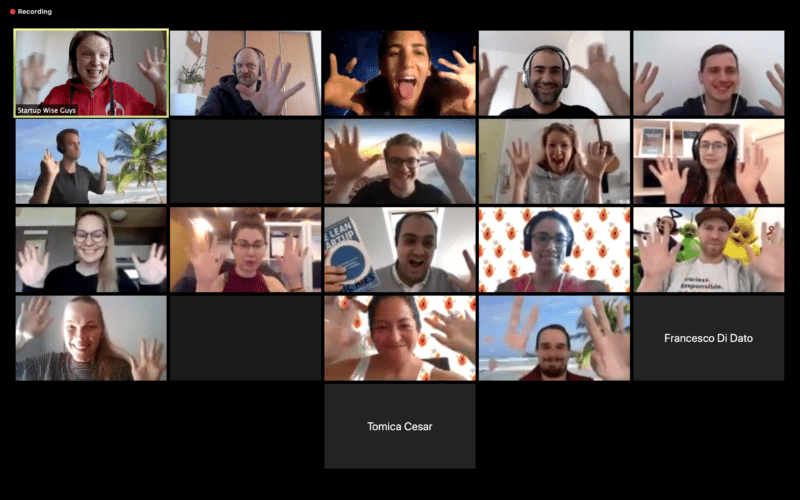How Traditional Investors and Acceleration Programs Can Still Benefit Web3 Startups

Driving purposeful innovation in Web3 startups is crucial for long-term success. As the Web3 ecosystem evolves, traditional investors and acceleration programs help bridge the gap between innovative technology and market viability. This blog offers insights for Web3 founders on leveraging these resources for growth and achieving business goals.
Experts Gilles DC, Managing Director of the Startup Wise Guys Web3 Accelerator program, and Pedro Cerdeira, Partner at 3 Comma Capital, share their valuable perspectives. Gilles brings extensive experience from leading successful Web3 programs, while Pedro, with over 25 years in Enterprise IT and senior roles at companies like Oracle and Accenture, provides a unique view on aligning Web3 startups with market demands and investor expectations.
Join us to explore their expert advice and learn how to navigate the complexities of the Web3 industry for sustainable growth.
Why Web3 Founders Should Care About Traditional Investors
Regulation and Credibility
Fundraising within regulated frameworks ensures compliance and builds credibility. Traditional investors, such as venture capitalists (VCs) and business angels, not only provide capital but also ensure that startups adhere to legal standards. This compliance mitigates risks associated with unregulated fundraising methods, such as token sales, which can lead to legal complications and loss of investor trust.
Mentorship and Network
Traditional investors bring extensive networks and mentorship opportunities. They offer strategic guidance, connect startups with potential partners, and help navigate operational challenges. This support is vital for early-stage startups aiming to scale efficiently and effectively.
Structured Growth
Acceleration programs provide a structured pathway for growth with clear milestones. Programs like the one offered by Startup Wise Guys invest up to $150K in convertible notes with the possibility of an additional $300K follow-on investment. This structured approach helps startups focus on achieving key performance indicators (KPIs) and scaling sustainably.
The Role of Acceleration Programs
Acceleration programs offer holistic support, including workshops on sales, marketing, product development, and fundraising. For Web3 startups, these programs provide tailored mentorship to refine business models and achieve market fit, focusing particularly on B2B applications.
Community and Resources
Being part of an accelerator connects startups with a community of like-minded entrepreneurs, alumni, and industry experts. This network offers invaluable peer support, shared experiences, and collaborative opportunities, fostering a supportive environment for growth.
Focus on B2B
Acceleration programs targeting B2B startups provide specialized resources and mentorship that address unique challenges, such as long sales cycles and enterprise-level product development. This focus ensures that startups can effectively reach and serve their target markets.
Preparing Your Application
Honesty and Clarity
When applying to an accelerator, honesty is crucial. Clearly outline your business model, traction, and challenges. Avoid exaggerating your product’s capabilities or making unrealistic claims. Transparency and a clear understanding of your business are highly valued.
Highlight Your Team and Traction
Provide detailed information about your founding team and their backgrounds. Highlight any traction, such as early customers, revenue, or partnerships. This helps assess your startup’s potential and readiness for acceleration.
Understand Your Market and Competition
Demonstrate a thorough understanding of your market and competition. Explain how your product stands out and what makes it unique. This shows that you have done your homework and are prepared to navigate the competitive landscape
Real-World Examples
To illustrate the evaluation process, consider two real-world examples of startups assessed by Startup Wiseguys:
- Startup 1: Focuses on an AI solution for anticipating communication risks and opportunities in the realm of disinformation. Despite having 30-40K in monthly revenue, their sales were project-based rather than recurring. The co-founders had strong technical backgrounds but lacked sales experience. Nevertheless, their ability to attract customers from different countries and renew existing clients indicated strong market potential.
- Startup 2: Offers a platform builder that allows businesses to create custom platforms, saving up to 80% in time and budget. Despite having raised 1.6 million previously, their revenue was only 3K, and the co-founders were not working full-time on the project. The equity split was heavily skewed, with one founder holding 60% and the other only 10%, raising concerns about commitment and team dynamics.
In evaluating these startups, Startup Wiseguys decided to invest in the first startup due to its stronger revenue, equal commitment from co-founders, and a balanced cap table. The second startup, despite having raised significant funds previously, showed too many red flags in terms of financial health and team commitment.
Conclusion
Traditional investors and acceleration programs offer invaluable benefits to Web3 startups, including regulatory compliance, mentorship, structured growth, and access to extensive networks. By integrating traditional funding with innovative Web3 technologies, startups can build robust, scalable businesses.
Web3 founders looking to accelerate their startups should consider applying to structured programs like those offered by Startup Wiseguys. These programs provide the necessary tools and support to transform innovative ideas into market-ready solutions, driving sustainable growth in the rapidly evolving Web3 ecosystem.
Feeling more confident about applying to an accelerator? Don’t miss the opportunity to elevate your Web3 startup—our Web3 program applications are open until October 3. Join us and take the next step towards your success!
August 21, 2024


